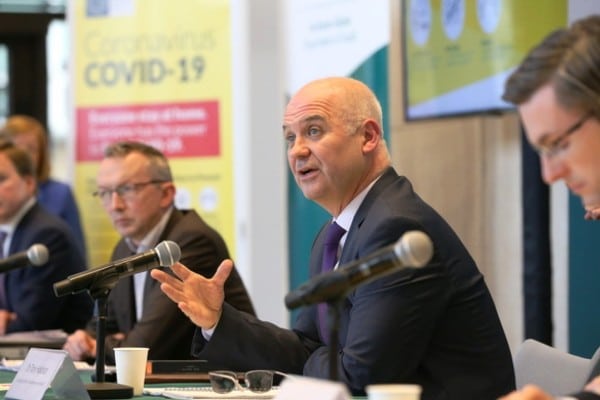
![]()
A report of the practises and behaviours of the National Public Health Emergency Team (NPHET) and the government by Trinity College Dublin researchers during the covid-19 pandemic has criticised a lack of transparency as to who were key decision makers during the Covid-19 pandemic.
Trinity College legal experts have reported that the National Public Health Emergency Team became the 'de-facto decision maker' rather than advisors to the Government.
The report also states that a number of sub-groups set up to examine specific issues during the pandemic disappeared without explanation, and that some measures were 'perhaps heavy handed'.
It suggested that ministers were happy to put the blame for unpopular restrictions back onto health officials.
Alan Eustace from Trinity School of Law, says "We were very critical of the transparency around the role of NPHET as a decision-making body, and also of NIAC it should be said.
"Neither are statutory bodies, so it's not set out in law what their role is, how they are to be formed and what sort of considerations they have to take into account.
"We criticise their lack of expertise in some areas."
Assistant Professor in Law at Trinity College Dr Sarah Hamill says the report questions how much power NPHET has: "What we've seen since March 2020 is that there have been some clashes between NPHET and the government. Certainly after December 2020, there was a sense that maybe NPGHET's recommendations were being adopted unquestionably."